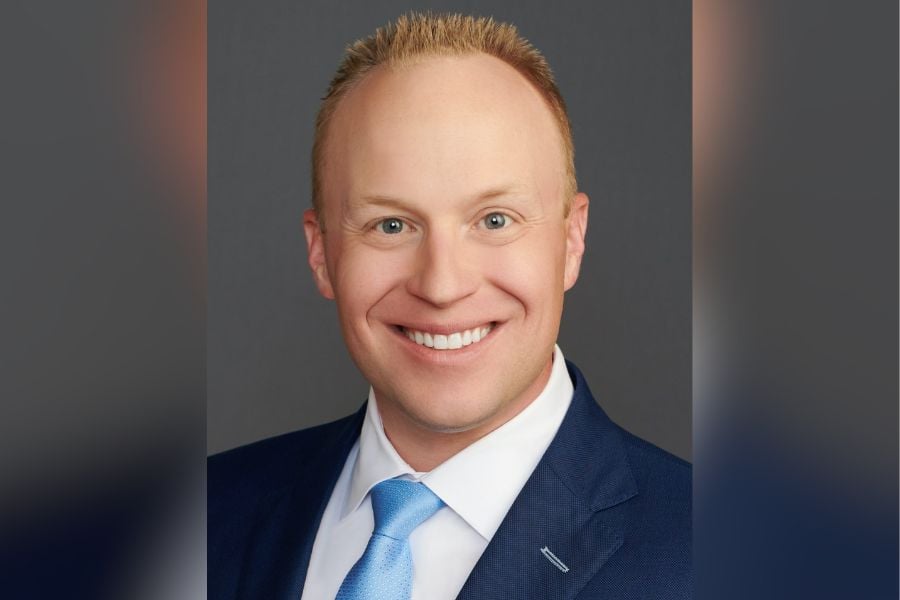

While the advisory industry must contend with a “human capital crisis,” some advisors are stepping up to the plate to try to fix the problem.
James Bogart, CEO and founder of McLean, Virginia-based Bogart Wealth, has created Advisor Growth Track, a recruiting tool and professional growth and training program that his firm uses to attract and train qualified staff.
Bogart wants to ensure that the next generation of advisors are confident and competent, two characteristics that are central to the program’s mission.
“To be an effective advisor, you have to have confidence, and you have to have competence,” he says. “Independently, if you have a lot of competence with not a whole lot of confidence, you can't be very effective, and if you have a lot of confidence with no competence, you'd be very dangerous. So the whole point is to merge the two.”
Advisor Growth Track participants will rotate through client service, financial planning, and investment management before landing in a position where they're responsible for overall financial advising. Along with rotational assignments, there are brief periods of formal instruction and testing.
It’s important for Advisor Growth Track advisors to have on-the-job experience, Bogart says, so they can see what it's like to service accounts, build financial plans, and work in the planning department. They will also gain the skills for portfolio management, building investment proposals and understanding trading.
The program covers “all of the different nuances of what goes into servicing a client because that's what naturally leads them to be knowledgeable and empowered advisors," he said.
Advisor Growth Track was created in 2021 to help the firm deal with having more leads than it had advisors who were able to service or capture those leads, Bogart said. “It's a unique problem and I'm proud to have that problem.”
However, it does create an element of brand exposure, he said, because “if you can't service what you're promising, then you're going to ultimately be impaired because of it. For me, the human capital element is a very important part of how we're building our growth strategy.”
Bogart argues that human capital is the biggest issue that advisors are facing when it comes to their business. To remedy that, he says advisors should focus on training, as it is “at the epicenter of bringing on and integrating new advisors.”
Second to that is technology and its use to increase efficiency.
A third issue advisors are facing, and one that could be extremely important, is building out redundancy associated with every single role within a business.
“The fact is, this war of human capital isn't going to get better, it's going to get worse, in my opinion,” Bogart said. “Right now, we're starting to see the trend similar to what we saw within the broker-dealers. RIAs are now competing with each other for talent. And not just new talent, but we're poaching from each other now.”
Along with that competition, Bogart points out that roughly 93 percent of RIAs are not growing. “Firms that are doing real, true organic growth are going to become harder and harder to come by. Right now, they only represent 7 percent of the business,” he said.
Given the future of the financial advice space and its aging demographics, Bogart says advisors ultimately need to have a succession plan in place.
“If you don't have a succession plan, you're already behind the curve,” he says. “This next generation, they want to know what the path is for them and how they're going to grow within the industry. If you can't clearly articulate that for them, it's just a war of attrition at that point; they’re going to go somewhere else that's going to give them that clarity.”
Reflecting on the last four years, in which his firm has grown from $600 million to almost $3 billion in AUM, Bogart noted that it's not the problems that are good, bad or worse, “they're just different”.
“Just because the firm has gotten bigger doesn't mean the problems that you had then don't still exist,” he said. “Like, staffing components. I mean, we went from five people to 43 people. And with that, you need management, you need redundancies, more policies. It’s tough. But I think most importantly, you have to have a leadership team in place and empower them to be able to make those decisions for you because it can't just be one person.”
Name: James Bogart
Position: CEO and founder
Company: Bogart Wealth
Founded: 2016
Firm AUM: $2.9 billion

Relationships are key to our business but advisors are often slow to engage in specific activities designed to foster them.

Whichever path you go down, act now while you're still in control.

Pro-bitcoin professionals, however, say the cryptocurrency has ushered in change.

“LPL has evolved significantly over the last decade and still wants to scale up,” says one industry executive.

Survey findings from the Nationwide Retirement Institute offers pearls of planning wisdom from 60- to 65-year-olds, as well as insights into concerns.
Streamline your outreach with Aidentified's AI-driven solutions
This season’s market volatility: Positioning for rate relief, income growth and the AI rebound
